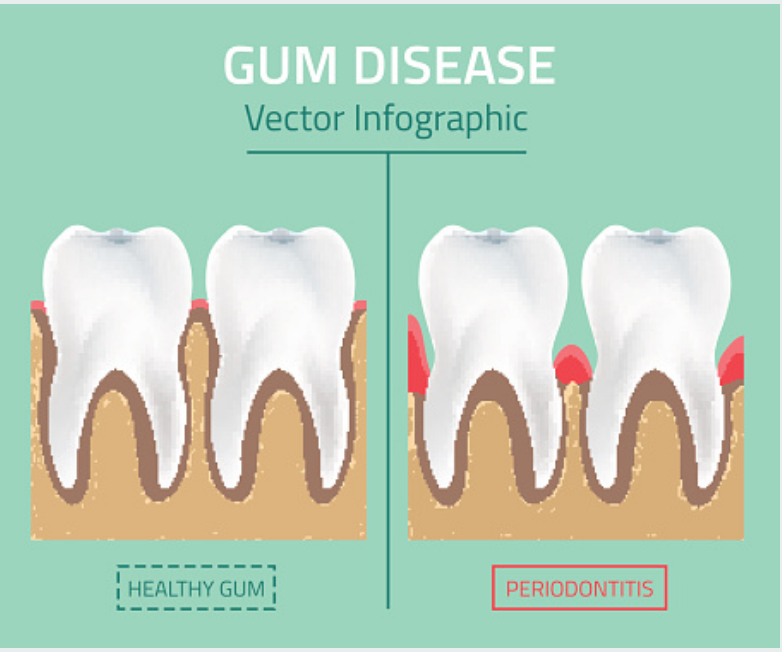
11 Jan What is Gum Disease?
Gum disease is common in the U.S; the statistics of it pointing to approximately one half of all adults over thirty will contract a severe version of it called periodontitis in his or her lifetime. And, luckily, the early stages of gum disease are easily treatable, but sometimes the symptoms for it might be ignored until the symptoms have evolved to a much more severe version called Periodontal disease, which, unfortunately, is not as easily treatable. But, here are a few ways to combat gum disease, and also how to recognize the symptoms.
Gum disease is obviously likened to poor oral care, and good quality oral habits are paramount in any discussion about oral health. Keep to a strict schedule of brushing at least twice daily and flossing at least once, and keep to your schedule of regular dental visits. But did you know that gum disease is not always a product of poor oral care? It could also be caused by things like genetics or even the medications we might take; certain medications can have side effects that cause gum disease.
When gum disease initially takes hold the symptoms of it are often red or swollen gum tissue, and, possibly, the gum tissue may bleed. These initial stages are called gingivitis—when plaque (the sticky bacteria in your mouth) cause an infection below the gum line—and gingivitis is easily treatable by your dentist, and a follow up of at home oral care habits. If gingivitis persists it could progress to the much more severe periodontal disease, which can permanently damage the mouth, cause changes to the mouth that are irreversible.
The initial stages of Periodontal disease cause teeth to move around in the mouth unsupported, changing someone’s bite or the straightness of their smile. More severe symptoms are highly destructive infections that destroy bone and tissue in the mouth.
But it doesn’t have to get that far. Keep to a good oral routine, keep to your regular checkups with your dentist. Be active in your oral health rather than reactive, and if you have any of the signs of early gum disease, make sure to schedule an appointment today.

No Comments